
Do you have what you need to make your garden grow?


Garden Center
Store Hours
Mon-Sat:
6:00am - 10:00pm
Sun:
7:00am - 8:00pm
Curbside:
09:00am - 6:00pm
Location
Popular at Your Garden Center
Summer Popular Garden Supplies and More
Explore June Live Plants
Garden Project Calculators
;Resize=(703,395.44))
Grass Seed Calculator
When you're ready to seed your lawn, our calculator helps you estimate the amount of grass seed you'll need to get the job done.
;Resize=(703,395.44))
Mulch Calculator
Enter your preferred material, the square footage and mulch depth of the coverage space for accurate results.
;Resize=(703,395.44))
Fencing Calculator
We'll calculate the amount of fencing you should purchase based on your property needs.
Shop Outdoor and Garden Brands
Frequently Asked Questions About Gardening
What planting zone am I in?
Check the USDA zone map, as planting zones have changed slightly over the years. Zones with higher numbers can plant earlier in the year. Choose plants that are meant for your zone and increase your odds of gardening success.
What's direct sow in gardening?
If the soil is warm and pliable, consider planting your veggie, flower, or fruit seeds directly into your garden. This is called the "direct sow" method. The time to plant will be after the threat of frost is gone for the season, as sprouts and seedlings can't weather those conditions. You can also start your seeds indoors if you'd like. Consult your seed envelope for when and how to sow seeds.
Do you carry organic seeds and plants?
We offer many organic gardening options, including organic veggie seeds and fruit seeds, as well as organic herb and flower seeds that are subject to availability. We also carry the organic fertilizer to feed your plants and the organic soil to plant them in.
Do I have to harden off my seedlings before planting them outside?
Yes, if you raised plants indoors from seeds in your own plant nursery, harden them before you transplant them. Hardening allows your seedlings to adjust to the great outdoors and rain, sun, and temperature swings, making them more resilient against cold snaps. It slows their growth until they're strong and ready to take off during a spring warm front.
How do I prep for planting seeds or transplants outside?
Before you plant, make sure that your plant will have the right amount of sun, the soil is healthy, and it's warm enough outside. Check your seed package to see if it likes shade, partial sun, or full sun, as well as what time of year it should be planted. Space your plants as described for best results so your plant babies have room to flourish.
Should I use peat moss starters or coir starters?
Seed starters, full of nutrients in convenient pellets or pots, work for new and experienced gardeners. You don't have to use these starters if you're planting in soil, but you may want to. Starting seeds in peat pots works best for delicately rooted plants like carrots and beets, as well as flowers that need acidic soil. Some people prefer coir starters instead, as they have a neutral pH. Check what type of soil your plants need to help narrow it down, and chat with a garden center associate if you need more info.
Garden Project Ideas
The Home Depot Garden Center at Bridgeton
Celebrate Springtime Gardening
On beautiful spring days, tidy the yard before everything blooms in earnest. You can also add beauty and interest with stonework, hardscaping, and water features. Don't forget to sweep out the gazebo and clean the shed in preparation for spring, too. No matter which plants you need and what outdoor projects you choose to tackle, you'll find that The Garden Center in Bridgeton is your local plant nursery to help you enjoy your spring activities to the fullest.
Plant Hardiness Zones Explained
The first thing to know when planting spring flowers, vegetables, and other seeds is your planting zone. Every location in the U.S. and its territories is sorted by climate. Find your zone on the USDA zone map and learn when to plant seeds.
For example, you could transplant bell peppers outdoors in mid-March in Zone 10, but not until the end of May in Zone 4. The plants that'll thrive in your area are in your zone — plus all the zones numbered less than that. In other words, a Zone 9 garden can support plants listed as Zones 1–9. You can plant seeds indoors roughly a month before you can plant them outside, known as direct sow. Always read your seed packet for details. If you start them later than recommended, it's not ideal, but it should even out as time passes.
Gardening in Your Growing Zone
This area is primarily in Zone 6, with Zone 5 starting in Central Illinois, slightly north of Peoria and Bloomington-Normal. The outdoor growing season doesn't begin here until mid-March or even April, although you can plant some veggie seeds halfway through February. Tomatoes, peppers, cucumbers, squash, and other classic garden crops will thrive in this region, and most of them can get an early start indoors before spring really moves in.
Also, check out certain herbs and cruciferous veggies if you're ready to get planting. This includes broccoli, cabbage, and kale. Greens like spinach, artichokes, and fragrant herbs, including parsley, basil, and oregano, also don't mind an early beginning. The main concern is waiting until the frost has passed for the season, so planting seeds outdoors as direct sow is later here compared to farther south.
Start Seeds Indoors
Save money and gain the satisfaction of growing your garden from seeds by starting them indoors in your own plant nursery. We've got all the seed starter supplies you'll need. Make sure you have a warm and sunny spot that gets at least 12 hours of light. Then you have everything you need to try your hand at growing seeds. Early spring light isn't usually strong enough, so we recommend extra lighting to keep those seeds warm enough to germinate.
Measure your finger to use it as a ruler. In general, you'll plant 3–5 seeds, then press them into the soil to the depth you need with your finger. Mark where you planted the seeds with a plant tag or toothpick. That way, you'll know where your seeds should pop up. Otherwise, it'll be a surprise when the sprouts push out of the soil.
Sprouts
Prepare your seed sprouts for outdoor life while they're still indoors. These micro-seedlings are fragile — only an inch or so high, with the tiniest seedling leaf or two — but they're resilient. Seedlings don't get all this pampering in nature, so they can handle more than you think. However, don't go overboard, as your sprouts are still babies. You can even use an oscillating floor fan on low to mimic the wind and strengthen their stems.
Harden Your Seedlings
Once your seedlings have sprouted and are a few inches tall, start hardening them off. This process of gradually introducing them to the outdoors makes them stronger in the long run. Hardening means you're less likely to lose your growing garden during a sudden cold snap.
Transplant Young Plants Into Their New Homes
When your plants have three or four real leaves — different from mini seedling leaves — transplant them. In quality soil, dig a hole the same size as the dirt plug where your transplant has been growing. If your ground soil isn't great, dig a slightly bigger hole and fill the extra space with nutrient-rich topsoil. Apply fertilizer as directed, either on top of the soil after it's planted or in the hole. Only apply as much as recommended, as you could burn and kill the plant instead of helping it.
Protect Your Garden With Mulch
Finish it all off with mulch and compost. Mulch controls weeds and keeps your soil from drying out. Compost enriches the soil so your garden can grow even better. It may help foster larger and stronger plants that bear more flowers and fruit. Compost and mulch can be DIY creations, but you can also purchase them in-store. The next time you're looking for "mulch near me," stop by the Garden Center to get the perfect amount.
Greet the Spring
Late winter into early spring is an exciting time in the world of gardening. Plan your garden and landscaping, prepare to fertilize your lawn, and browse The Home Depot nursery to find inspiration on what to plant when the weather warms. For those without lawns, consider adding artificial grass or an outdoor rug to your outdoor space. Shop for the fertilizer, seeds, and soil you need in the aisles of your Bridgeton Garden Center, online, or on our mobile app. Let's get growing together.
Nearby Stores
Find Another Store
8901 Page Ave
Overland, MO 63114
4.31 mi
Mon-Sat: 6:00am - 10:00pm
Sun: 7:00am - 8:00pm
13915 New Halls Ferry Rd
Florissant, MO 63033
7.01 mi
Mon-Sat: 6:00am - 9:00pm
Sun: 7:00am - 8:00pm
10930 New Halls Ferry Rd
Saint Louis, MO 63136
7.65 mi
Mon-Sat: 6:00am - 9:00pm
Sun: 7:00am - 8:00pm
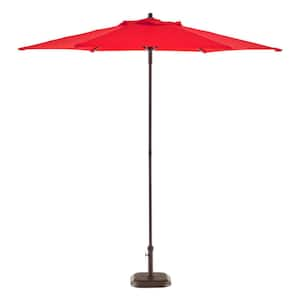
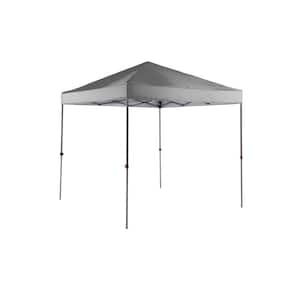
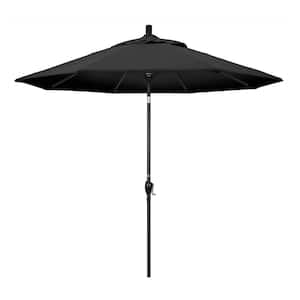
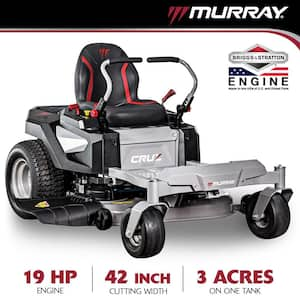
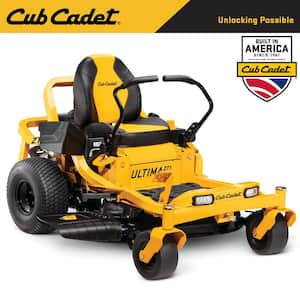
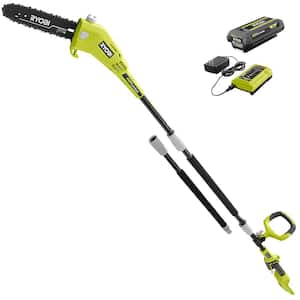
)
/17_514245_S_012_Product%20Image%20(square).jpg?im=Resize=(300,300))
)
)
)
;Resize=(300,300))
/2023_P2_Rain_Barrels_Product%20Image%20(square).jpg?im=Resize=(300,300))
)
)
)
)
;Resize=(300,300))
;Resize=(300,300))
;Resize=(300,300))
)
;Resize=(300,300))
;Resize=(300,300))
)
/12_SOIL_B_0420_Social%20media%20(square).jpg?im=Resize=(300,300))
;Resize=(300,300))
;Resize=(300,300))
;Resize=(300,300))
;Resize=(300,300))
)
;Resize=(300,300))
)
;Resize=(300,300))
;Resize=(300,300))
/18Patio_Camden_Seagrass_5pcSeating_Planters_302468736_DTL3_L_Social%20media%20(square).jpg?im=Resize=(300,300))
;Resize=(300,300))
;Resize=(300,300))
)
;Resize=(300,300))
;Resize=(300,300))
;Resize=(300,300))
;Resize=(300,300))
)
;Resize=(300,300))
)
)
.jpeg?im=Crop,rect=(363.69230769230774,1.2307692307692308,958.7692307692308,958.7692307692308);Resize=(300,300))
;Resize=(300,300))
;Resize=(300,300))
)
)
;Resize=(300,300))
)
)
;Resize=(300,300))
;Resize=(300,300))
)
;Resize=(300,300))
)
)
;Resize=(300,300))
;Resize=(300,300))
)
;Resize=(300,300))
/Capello_Spring_Mum_10in_Social%20media%20(square).jpg?im=Resize=(300,300))
;Resize=(300,300))
)
)
)
)
)
;Resize=(300,300))
)
)
;Resize=(300,300))
;Resize=(300,300))
;Resize=(300,300))
)
)
;Resize=(300,300))











































